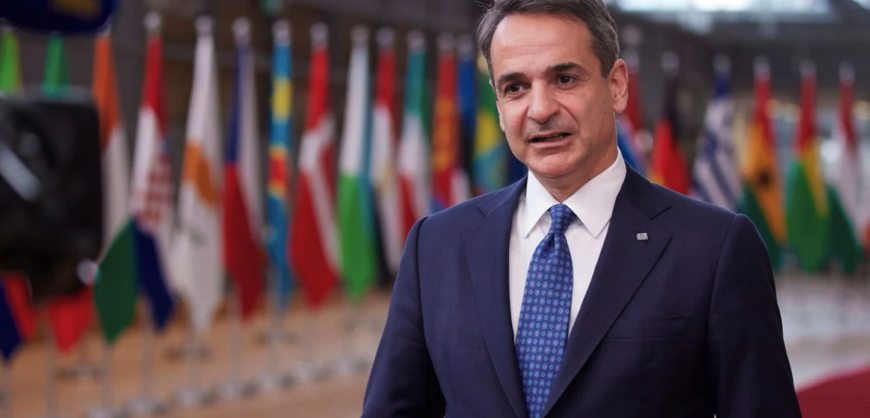Shortly before heading across the Atlantic to Canada, Kyriakos Mitsotakis will be in Brussels today and tomorrow for a “geopolitical” Summit, where a number of international issues will be on the agenda, as well as the major issue of the EU’s strategy.
The EU’s defence industry and its broader defence posture in a changing world, which could become even more unpredictable if Donald Trump is re-elected in the US.
In the debate on European defence strategy and the defence industry, Greece comes from a position of strength, given that it is one of the EU and NATO member states with one of the highest per capita defence spending rates in the Alliance.
Mitsotakis, in fact, has already spoken of the need for a common pace in EU defense procurement, but has also added that the European Union should also find a way to spend more “smartly” on common defense.
Notably, just yesterday Mitsotakis was at the delivery of three new Romeo MH-60R Seahawk helicopters out of a total of seven that will be integrated into our Navy force and stressed that rapprochement with Turkey is enforced, but illusions are forbidden as the neighbor continues its arms program in turn.
It is recalled that the new EU position on defence issues will be one of the key priorities of the new Commission that will emerge after the European elections, which will also include a new position of Defence Commissioner, with responsibilities currently held by the High Representative.
“To transform strategic autonomy from a slogan into a real and effective policy. Look, for example, at defence.
Not only do we need to spend more on defence, but we need to coordinate our defence spending,” Kyriakos Mitsotakis said in this context in an interview aired on Euronews the other day.
The spending exception is not enough
Alongside all this, the prime minister is expected to reiterate that the provision in the new fiscal rules to exclude defence spending during the excessive deficit procedure is in the right direction.
However, he is expected to stress that this provision is neither sufficient nor ambitious in relation to what needs to be done in European defence. In other words, Mitsotakis wants to say to other countries that may be treating the issue of European defence lightly that an accounting settlement of the issue is not enough.
In fact, at a time when EU member states are required to invest in various fields, Kyriakos Mitsotakis is expected to stress that there should be a serious discussion on how to find these funds, i.e. how to finance European defence.
Support for Ukraine through third parties
Given that there will also be a discussion on the military developments in Ukraine, Mitsotakis will appear to be in favour of the participation of third countries in the country’s defence support, on the basis of schemes that have already been established, provided that the third countries do not circumvent the sanctions against Russia.
Trump: Putin “probably” involved in Navalny’s death
More broadly, however, Greece’s position is the need to continue support to war-torn Ukraine, while Mitsotakis is expected to brief his counterparts on his recent visit to Odessa, his discussions with Zelensky and the importance of the Ukrainian south, with the Ukrainian sea corridor for the export of goods at the forefront. He is also expected to report on the missile attack during his stay in Odessa.
Brake on the humanitarian crisis in Gaza
Against the backdrop of developments in Gaza – and the EU’s failure so far to adopt a common position on the issue – Mitsotakis will reiterate our country’s growing concern about civilian casualties and the humanitarian crisis that is brewing, while underlining the need for an immediate ceasefire, the release of all hostages and the opening of all humanitarian aid routes in order to provide relief to the suffering civilians in Gaza.
He will, however, stress that it is important to prevent further destabilisation of the wider region and will reiterate that Greece stands ready to contribute to any effort leading to regional stability.



































